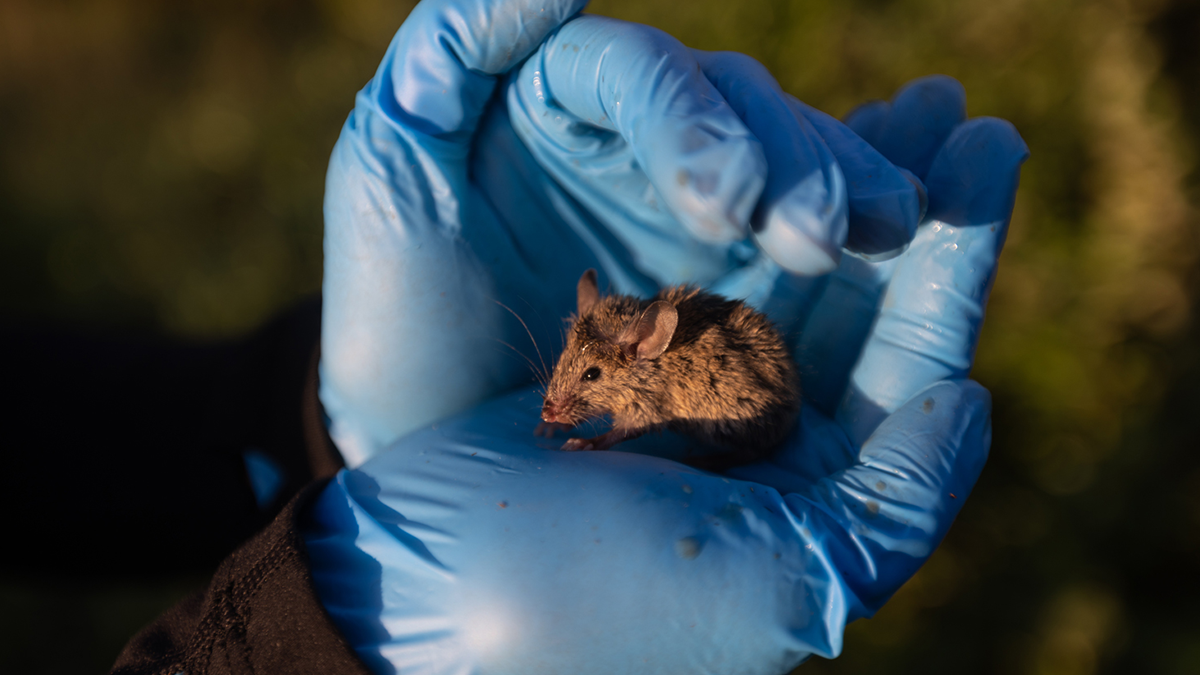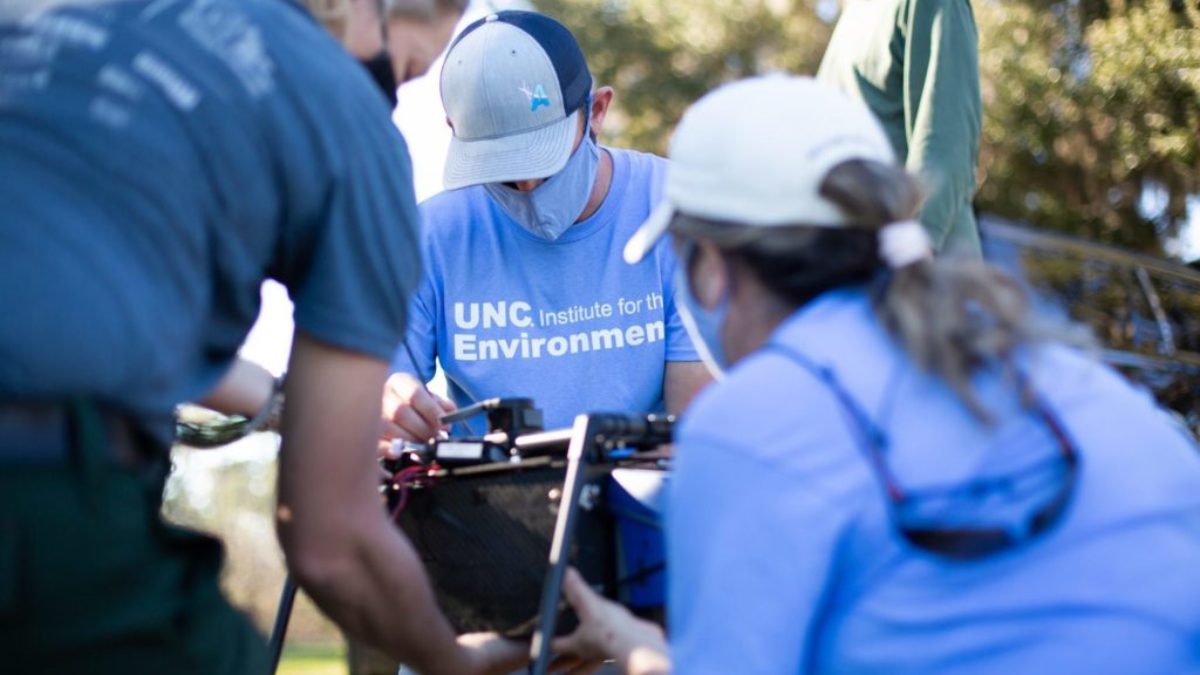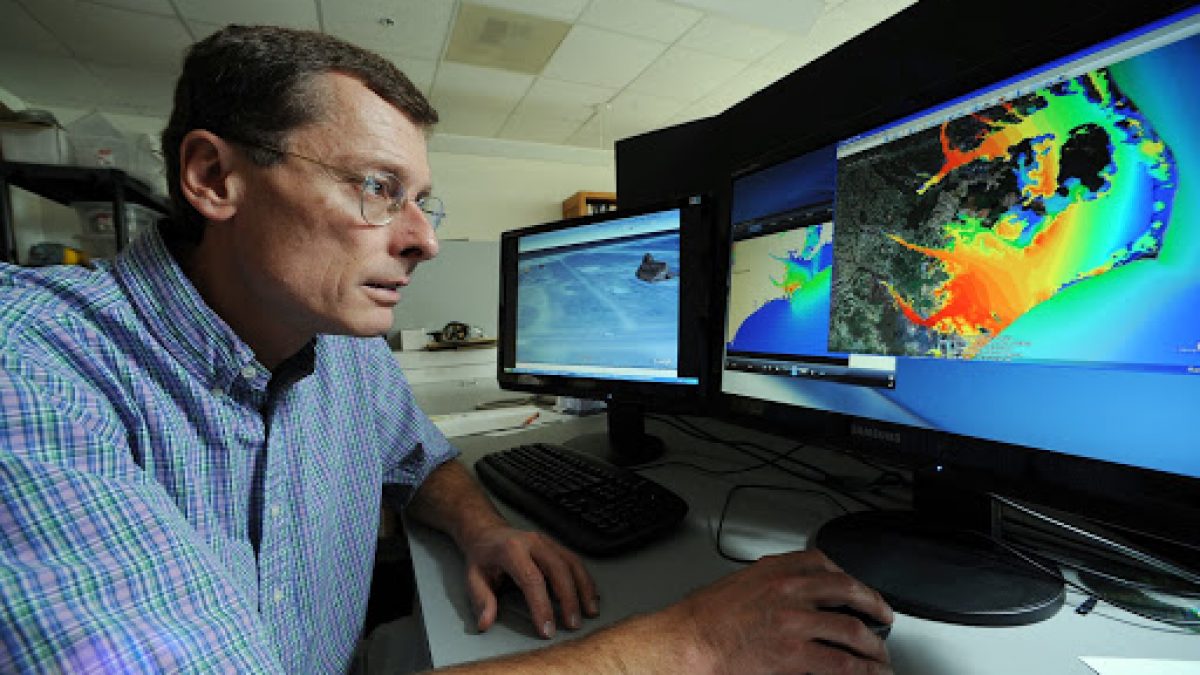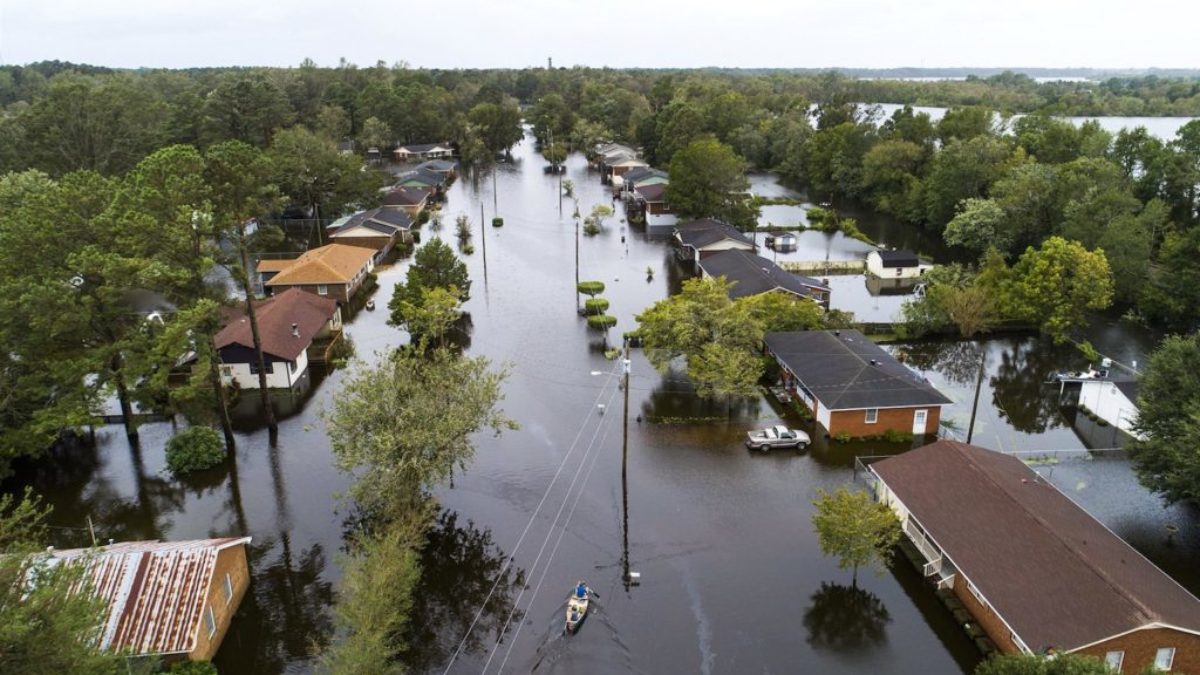Taking Environmental Studies to New Heights
“Michael Piehler’s childhood inspired him to pursue his life’s work in restoring ecosystems in need.”

“Michael Piehler’s childhood inspired him to pursue his life’s work in restoring ecosystems in need.”
Having grown up in Pittsburgh during the collapse of the steel industry and the city’s subsequent revitalization, Michael Piehler’s ’90 ’94 (M.S.) ’97 (Ph.D.) childhood experiences left an indelible mark and inspired him to pursue his life’s work in understanding the human impacts on natural systems and designing solutions to restore ecosystems in need.
His hometown city’s water and air quality were compromised by pollution, but ultimately improved as he grew up. He witnessed the comeback of sensitive species, like the Northern Pike in rivers in the city. Piehler also enjoyed the professional sports scene, watching the Steelers and Pirates win multiple championships — illuminating a city on the rise.
Now at the helm of the UNC Institute for the Environment (IE), Piehler will draw on his lifetime of experiences as an observer, researcher, teacher and convener to lead an environmental convergence at Carolina to new heights.
Read the complete Carolina Story from the UNC Institute for the Environment…Opens in new window
.





